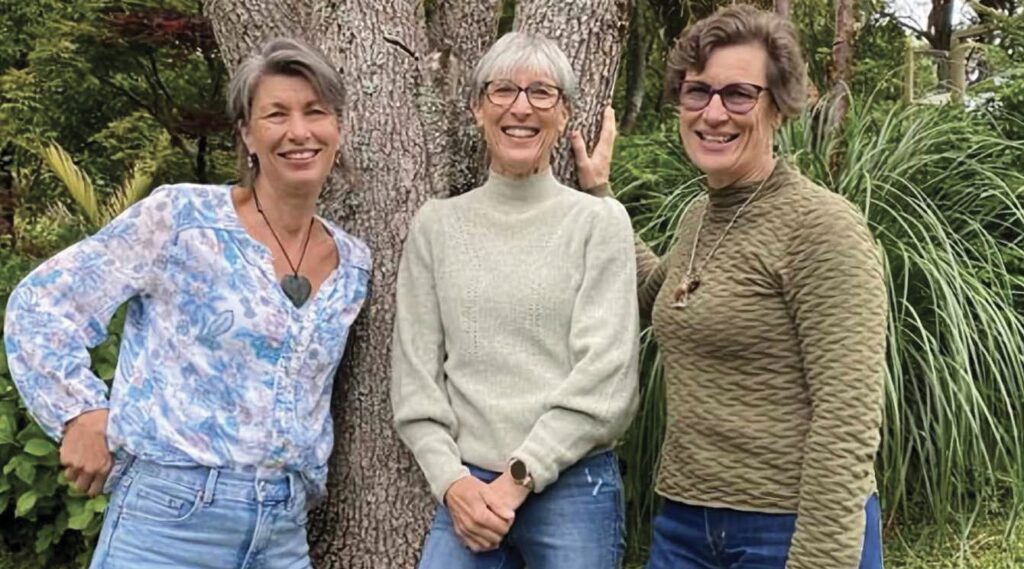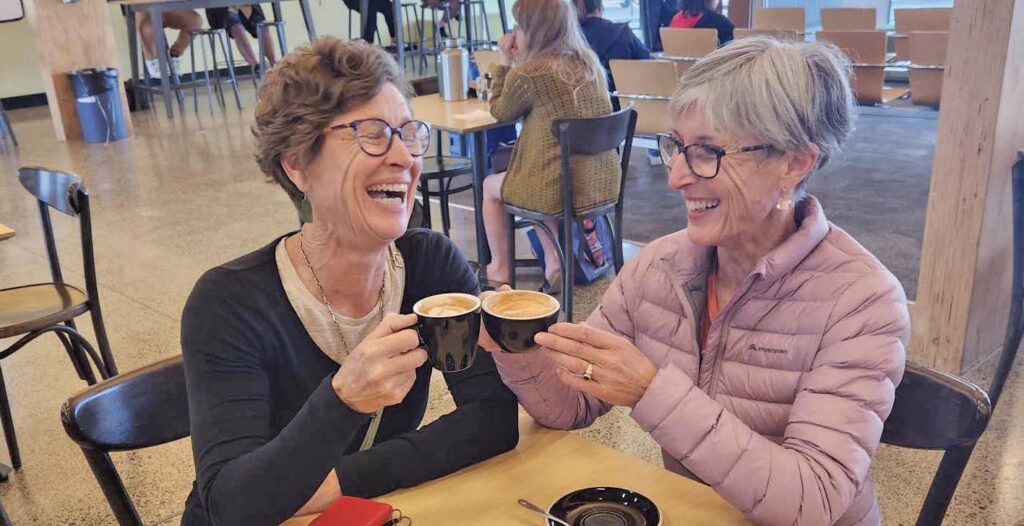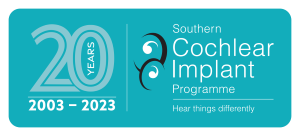Before my hearing loss developed, life was so good. I had a loving family, was fit, healthy, and social. I had a wide group of friends and a kindergarten teaching job I was enjoying. I had just returned to work after being home for 10 years looking after our babies who were now moving into high school teenage years. In January 1999, I was fitted with bilateral hearing aids. I was diagnosed as having a moderate hearing loss in one ear and a moderate to severe hearing loss in the other. By September 2006, I required the most powerful hearing aids that there were. I am severely deaf in both ears. I have developed what is called an unexplained hearing loss.
 I have had every test imaginable to search for the cause, but no cause has been established, hence the term ‘unexplained hearing loss’. I went from being a confident, short-haired, social, ‘out there’ woman to a reclusive, isolated, unsure woman, who grew my hair to cover my failing ears. I had turned into a woman that said no to anything that required listening. That is no to life.
I have had every test imaginable to search for the cause, but no cause has been established, hence the term ‘unexplained hearing loss’. I went from being a confident, short-haired, social, ‘out there’ woman to a reclusive, isolated, unsure woman, who grew my hair to cover my failing ears. I had turned into a woman that said no to anything that required listening. That is no to life.
For six years I was in total denial about addressing the fact that I had a hearing loss. I didn’t know who to turn to or what to do. This didn’t happen to people like me. I wasn’t old! My work colleagues, friends, and family stood on the sideline in as much despair as me, in regards to what to do to help. I hit rock bottom, hiding under a blanket and crying six years of my life away.
A coffee in a shady, quiet café (and there are not too many of them around!) with a friend was the catalyst for change. In April 2006, I went to see a hearing therapist. Where did all these tears come from? She explained that it was a loss, and before I could deal with the remedies, I had to deal with the loss.
Her role was to help me with the practical side of a hearing disability. I needed to see a counsellor about the grief that goes with a loss. This realisation was like the beginning of a new day. I had never looked at it in this way. I haven’t looked back since. The first part of dealing with a hearing loss is admitting you have a loss. If you don’t do this, you are not ready to seek the solutions that suit you.
So, with the wonderful support of my counsellor, hearing therapist, audiologist, hearing association, family, friends, work colleagues, technology, and those others who deal with a hearing loss, I am now striving to live my life to the fullest. Solutions don’t just come. You must be proactive in seeking advice, trying new technologies, developing support networks, and educating your whānau, friends, and work colleagues.
Second to admitting you have a hearing loss is taking responsibility for finding solutions. Yes, I missed not hearing the rain, not being able to listen to music, not having the spontaneity of ringing a friend for a café coffee, not being able to catch that witty remark or flow easily into chatter and casual conversation.

I could not hear my footsteps, the warmth of my 18-year-old daughter’s voice on the phone (who has just left to work in Vancouver for a year), the roll and crash of our beloved sea, the call of the birds, twigs snapping under foot, the slide of the curtains, the kettle boiling, the microwave, oven timer (many burnt offerings!), the knock on the door. It is hard to explain the terrible isolation, the crushing loneliness, and the despair of not having the warmth and ease of communicating with fellow human beings. It’s hard to understand how someone’s spirit can be crushed by humiliation and how a person can become reclusive because so many personal relationships are ruined by misunderstanding.
However, for me, I have also discovered a new awareness and unconditional acceptance of other people’s disabilities. New relationships have developed, and I have explored how deep friendships really are and what family love means. Every day was and still is a challenge. It’s a matter of finding new ways to do things that I used to do.
The other challenge is for people to accept that they must make an effort or change their routine to allow me to have the relationships I used to have. My teaching team at this time wholeheartedly embraced this challenge. They had great sensitivity, caring, and innovativeness in finding new ways to allow me to continue to be a fully effective member of our teaching team.
Where was I going? I didn’t really know, as I didn’t know how far my loss would progress. The spectre of total deafness lurked; however, it doesn’t hold the fear it once did—because I have learnt being deaf won’t make me a lesser person. With the support of good people and the courage to face and name your problems, you can overcome them.
At that stage I was diagnosed with a profound sensorineural (permanent hearing loss)—3% in one ear and nothing in the other ear. In 2008, on my 40th birthday, I received the gift of a cochlear implant in my right ear.
